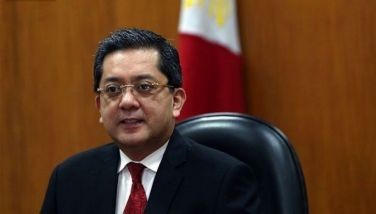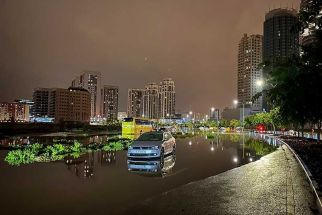‘Panama Papers’ list global tax avoiders
MANILA, Philippines - The biggest leak of tax records comprising 11.5 million documents from Panamanian law firm Mossack Fonseca showed how personalities – from celebrities to political figures – move their wealth to avoid taxes.
But amid a news report that made a massive leak of documents showing how institutions and personalities avoid taxes through offshore financial dealings, local authorities and industry players admitted both Philippine and global laws are “toothless” to fight such tactics.
RELATED: Panama Papers: Are Filipino politicians tagged in the biggest leak in history?
“In our case, we do not have information on how much is being lost because of that (wealth movement),” Bureau of Internal Revenue (BIR) deputy commissioner Estela Sales said in a phone interview yesterday.
A group of news media outlets published articles on Sunday based on what they said were 11.5 million leaked documents from a Panama law firm that helped some of the world’s wealthiest people – including politicians, athletes, celebrities and business moguls – establish offshore bank accounts.
The German newspaper Süddeutsche Zeitung said its reporters had obtained the documents from a confidential source.
The newspaper then shared the files with other media organizations, like The Guardian and the International Consortium of Investigative Journalists (ICIJ).
In an article, the investigative journalism organization said the documents revealed the offshore accounts of 140 politicians and public officials, including a dozen current and former world leaders and several individuals with close ties to President Vladimir Putin of Russia.
The organization said reporters at 100 news media outlets working in 25 languages had used the documents to investigate the law firm Mossack Fonseca and its clients, including political figures in countries like Iceland, Pakistan and Saudi Arabia.
It is not illegal in many cases to have offshore bank accounts. But they are used in some instances by wealthy individuals and criminals to hide money and business transactions, and to avoid paying taxes.
Terence Conrad Bello, immediate past president of Tax Management Association of the Philippines, said there is “nothing new” in the so-called “Panama Papers” released by the ICIJ.
“Tax practitioners already know that this is happening,” Bello said in a phone interview.
For her part, Sales did not say if Filipinos involved would be investigated.
However, efforts are being undertaken to plug loopholes in the tax system and give the government what it is due, she said.
“Our concern is taxes... To that extent, exchange of information will be able to assist us. Foreign governments can give us information and from there we can act,” Sales said.
But Bello disagreed, saying most jurisdictions considered as tax havens are “blacklisted” countries where exchange of information does not apply.
“Most of these jurisdictions where proceeds from these criminal activities go are tax havens where we do not have tax treaties with to confirm what is really happening,” he explained.
Developed countries are leading negotiations on a multilateral treaty on Base Erosion and Profit Sharing (BEPS), which aims to arm states to tax cross-border wealth and business-to-consumer transactions.
It also covers the digital economy or taxes that could be generated from online purchases.
BIR commissioner Kim Henares, who serves as vice-chair of the group drafting the treaty, could not be reached for comment yesterday.
According to the Organization for Economic Cooperation and Development, governments are losing between $120 billion and $240 billion in revenues to BEPS every year.
“BEPS is still under discussion. It could probably help, but not immediately,” Bello said.
“What we could do is strengthen our banking laws or it even boils down to strengthening our anti-money laundering laws,” he added.
The Philippines is currently investigating an $81-million money laundering case involving stolen funds from a New York Federal Reserve account of Bangladesh Bank, the South Asian nation’s central bank.
Leaked documents
The leaked documents followed a series of high-profile breaches in recent years in which individuals working for governments or companies have amassed internal files and then given them to media organizations.
In 2014, Edward Snowden, a contractor for the National Security Agency, gave reporters what intelligence officials have estimated was at least 1.5 million documents from the agency. Hundreds of articles have been published based on those documents.
The media organizations looking into Mossack Fonseca are expected to publish many more articles based on the new documents in the coming days.
The firm, which has dozens of offices around the world, has been investigated by law enforcement authorities in several countries over accusations of connections to money laundering.
In a lengthy statement provided to The Guardian, the firm said it could not respond to specific questions, but insisted that many of the individuals and companies named in the documents were never clients of Mossack Fonseca.
The firm added that in many cases it was “legal and common for companies to establish commercial entities in different jurisdictions for a variety of legitimate reasons.”
“Our services are regulated on multiple levels, often by overlapping agencies, and we have a strong compliance record,” the firm said.
“In addition, we have always complied with international protocols” to assure “that the companies we incorporate are not being used for tax evasion, money laundering, terrorist finance or other illicit purposes,” it added.
Putin aides implicated
Among the biggest findings of the media probe, which fingered about 140 political figures including 12 current or former heads of state:
• Banks, companies and close associates of Putin, who is not himself named in the documents, “secretly shuffled as much as $2 billion through banks and shadow companies,” according to the ICIJ. These allegations were not aired by Russian state TV.
• The families of some of China’s top communist brass – including the nation’s president – used offshore tax havens to conceal their fortunes. At least eight current or former members of the Politburo Standing Committee, the ruling Communist Party’s most powerful body, have been implicated.
• A member of FIFA’s ethics committee, Juan Pedro Damiani, had business ties with three men indicted in a corruption scandal. Argentine football great Lionel Messi and his father are named as owners of a Panama company, Mega Star Enterprises, that has not previously been disclosed in a Spanish tax probe into their affairs. UEFA chief Michel Platini used Mossack Fonseca to administer an offshore company, but he denied wrongdoing in a statement to AFP.
• A Panamanian shell company may have helped hide millions of dollars from the Brink’s-Mat heist, a $40 million British gold bullion robbery at London-Heathrow Airport in November 1983 that is etched in criminal folklore.
The Panamanian law firm denies the allegations, however, the ICIJ said.
• Iceland’s Prime Minister Sigmundur David Gunnlaugsson secretly owned millions of dollars of bank bonds during his country’s crisis when the financial system collapsed and banks had to be bailed out. The irritated premier denied wrongdoing in a television interview, which he cut short, but faces calls to resign and a no-confidence vote in parliament this week.
- Latest
- Trending



























